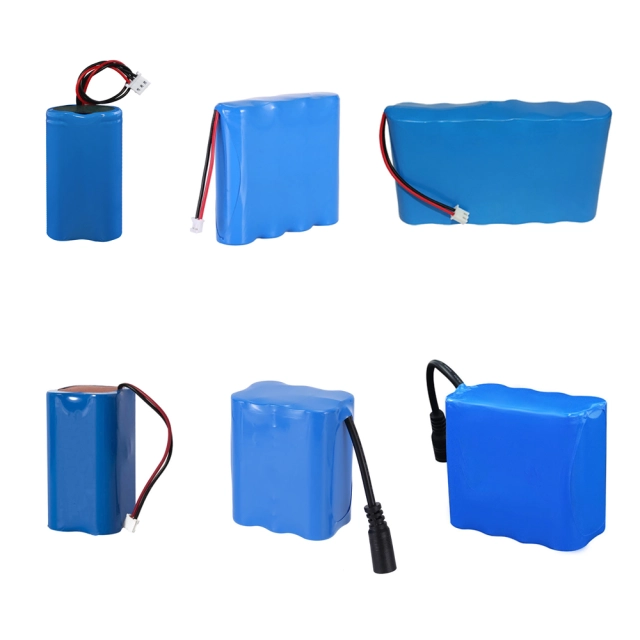Lithium Ion Battery Packs Customization for Diverse Project Applications
Table of contents:
Selecting the Right Cell Types and Chemistries in Lithium Ion Battery Packs
Tailoring Voltage, Capacity, and Dimensions to Meet Specific Design Needs
Connector and Wire Length Options for Seamless Integration in Custom Packs
Selecting the Right Cell Types and Chemistries in Lithium Ion Battery Packs
Choosing the foundational components of a battery pack is the first step toward creating a truly tailored power solution. The decision between different cell types, like the common 18650 and the more modern 21700, has significant implications for a project's final design. For instance, using 21700 cells to construct a 7.4v li ion battery can result in a smaller, lighter, and more cost-effective pack because fewer cells are needed to achieve the same capacity compared to 18650s. This is ideal for applications with space and weight constraints. Beyond cell format, chemistry is a key variable. Standard lithium-ion offers high energy density, suitable for consumer electronics that need long runtimes. In contrast, Lithium Iron Phosphate (LiFePO4) provides superior safety and a longer cycle life, making it better for medical or industrial equipment where reliability is crucial. A custom 7.2v battery can use either chemistry, depending on the application. Matching the cell type and chemistry ensures the power source is integral to the product’s design, with an expected lifespan of over 800 cycles under normal use.
Tailoring Voltage, Capacity, and Dimensions to Meet Specific Design Needs
Aligning the pack’s electrical specifications and physical footprint with the project’s requirements is the next layer of customization once the cell chemistry is determined. A frequent point of clarification is the distinction between a 7.2v battery and a 7.4v battery; this difference is purely nominal and rooted in historical labeling conventions, having no effect on performance or compatibility. The most critical specification is capacity, which can range from 1000mAh for small devices to 12000mAh for power-intensive applications. Matching capacity to the device's power draw is crucial for desired runtime without excess weight or cost. For instance, a low-power sensor may only need a 1000mAh pack, whereas a portable lighting system benefits from a higher-capacity 7.4v rechargeable battery. Customizing the pack’s physical shape and dimensions is equally important. Many modern products have non-traditional forms, and a custom-shaped battery pack can fit perfectly within unique enclosures, maximizing internal space and improving ergonomics and aesthetics. This tailoring transforms the battery from a bulky necessity into a seamlessly integrated component.
Connector and Wire Length Options for Seamless Integration in Custom Packs
Specifying the exact connector type and wire length ensures a smooth and efficient integration into the end product. Specifying the exact connector type and wire length may seem like a minor consideration, but it has a major impact on manufacturing and reliability. When a 7.4v battery arrives with the correct connector pre-installed and wires cut to the precise length needed, it eliminates the need for manual modifications on the assembly line. This plug-and-play approach saves valuable time, reduces labor costs, and minimizes the risk of connection errors or short circuits that can occur with soldering or using adapters. For product designers, this means a cleaner internal layout and a more robust final assembly. A custom 7.4v li ion battery can be equipped with a wide variety of standard connectors to interface directly with a device's mainboard. By addressing these integration details during the battery design phase, manufacturers can ensure that the power source fits flawlessly into their production workflow, improving both the quality and the efficiency of the final build. This attention to detail is a hallmark of a professional battery solution.
Building a product around a custom power solution provides a significant advantage in performance, design, and manufacturing. By specifying everything from the cell chemistry to the connector type, a 7.4v battery can be crafted to meet the exact needs of any application. With available capacities ranging from 1000mAh to 12000mAh, there is a solution for nearly any power requirement, and the nominal difference between a 7.2v battery and its 7.4V counterpart causes no issues. Partnering with an experienced supplier that has specialized in lithium-ion technology since 2006 opens up possibilities for innovative and reliable product development.

Comments
Post a Comment